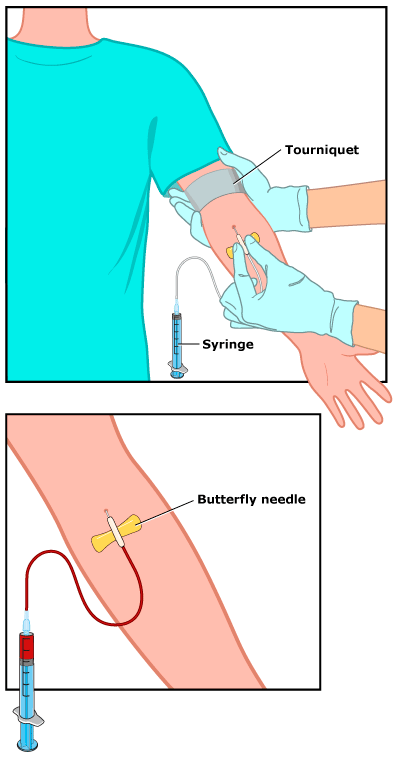Blood Test: Uric Acid
Article Translations: (Spanish)
What It Is
Uric acid is produced by the breakdown of purines, chemicals that enter the bloodstream during digestion of foods or from normal breakdown of some of the body's cells. The kidneys filter out most of the uric acid in the blood and eliminate it from the body in the urine. Some uric acid also leaves the body in the feces.
Uric acid can accumulate when the body produces too much or fails to excrete enough of it. Excess uric acid can also form crystals or kidney stones that can damage the kidneys.
Why It's Done
Doctors may order a uric acid blood test if they suspect high levels of uric acid in the bloodstream because the body is breaking down cells too quickly or not expelling uric acid as well as it should. Some children with leukemia or other types of cancer can have high levels of uric acid (hyperuricemia).
The uric acid blood test also can help doctors monitor kids receiving chemotherapy or radiation treatment. These treatments can increase the amount of uric acid in the blood, so the test can help make sure that levels don't get too high.
The uric acid blood test also may be ordered if kids show signs of kidney failure. Low levels of uric acid (hypouricemia) in the bloodstream can occur with starvation and certain medical conditions.
Rarely, excess uric acid in kids can cause gout, a very painful inflammation caused by uric acid crystals in joint fluid (also called synovial fluid). Gout most often affects the joints of the ankles, feet, and toes.
Preparation
There is usually no special preparation required for this test. Your doctor may ask that your child not eat or drink anything for 4 hours before the uric acid blood test, and also might tell you to stop any medications your child takes that could affect test results.
On the day of the test, it may help to have your child wear a T-shirt or short-sleeved shirt to allow easier access for the technician who will be drawing the blood.
The Procedure
A health professional will clean the skin surface with antiseptic and place an elastic band (tourniquet) around the upper arm to apply pressure and cause the veins to swell with blood. Then a needle is inserted into a vein (usually in the arm inside of the elbow or on the back of the hand) and blood is withdrawn and collected in a vial or syringe.
After the procedure, the elastic band is removed. Once the blood has been collected, the needle is removed and the area is covered with cotton or a bandage to stop the bleeding. Collecting the blood for the test will only take a few minutes.

What to Expect
Collecting a blood sample is only temporarily uncomfortable and can feel like a quick pinprick. Afterward, there may be some mild bruising, which should go away in a few days.
Getting the Results
The blood sample will be processed by a machine. The results usually are available within 1-2 days.
Risks
The uric acid blood test is considered a safe procedure. However, as with many medical tests, some problems can occur with having blood drawn, like:
- fainting or feeling lightheaded
- hematoma (blood accumulating under the skin causing a lump or bruise)
- pain caused by multiple punctures to locate a vein
Helping Your Child
Having a blood test is relatively painless. Still, many children are afraid of needles. Explaining the test in terms your child can understand might help ease any fear.
Allow your child to ask the technician any questions he or she might have. Tell your child to try to relax and stay still during the procedure, as tensing muscles and moving can make it harder and more painful to draw blood. It also may help for your child to look away when the needle is being inserted into the skin.
If You Have Questions
If you have questions about the uric acid blood test, speak with your doctor. You also can talk to the technician before the procedure.
Note: All information is for educational purposes only. For specific medical advice, diagnoses, and treatment, consult your doctor.
© 1995-2024 KidsHealth ® All rights reserved. Images provided by iStock, Getty Images, Corbis, Veer, Science Photo Library, Science Source Images, Shutterstock, and Clipart.com

